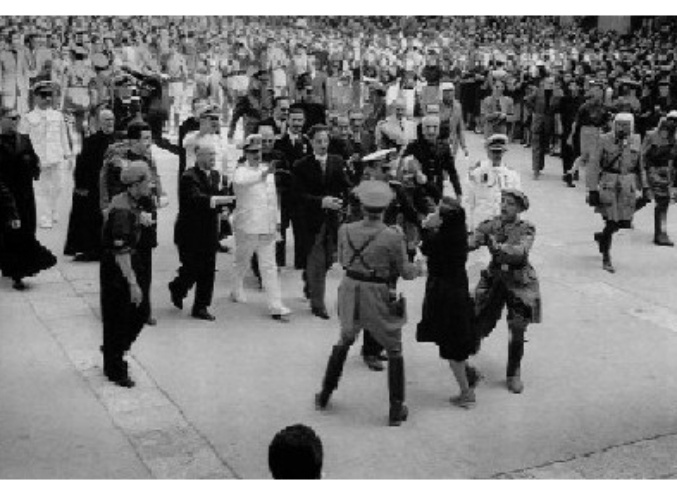- Instructor
- Melissa Dinverno
- Location
- BH 123
- Days and Times
- TR 2:20P-3:35P
- Course Description
Note: Graduate students only.
Contesting Repression: XXth Century Spanish Cultural ProductionDuring the turbulent years prior to the Civil War, Spain began one of the most complex periods of its history. The pre-war years, the experience of the war itself, and Franco’s repressive dictatorship have been determining factors in Spain’s cultural production in the twentieth century. Ultimately permeating society, their effects have lingered on long after the country’s transition to democracy was well under way in the 1980s. This course will analyze contemporary Spanish cultural production within the frame of repression and resistance. Thinking through various formulations of repression (gendered, sexual, class, racial/ethnic, political, etc.), we will look at ways intellectuals have configured and contested forces of constraint.
The first section of the course gives an overview of concepts of power, repression, resistance, and individual agency, and reflects on the power literature may have (e.g. Foucault, De Certeau, Bersani, Butler, De Lauretis, etc.). The second looks at a particularly renowned artistic project that reacted to repressive political, social and economic conditions that built to a crescendo in the 1920s and 1930s. What central issues in the Spanish cultural landscape are embodied in this creative project and how might it represent ways intellectuals engaged in contestatory practices at that time? The third section explores how artists both represent and contest repression and the totalitarian state from within the system itself. How can those within position themselves in order to contemplate and resist a system that labels and combats both of these very acts as subversive? We will examine the kinds of spaces writers create that allow them room for maneuver and within which they can both struggle with authority and speak of the experience as a subject of totalitarianism. The fourth section studies the idea of contesting in terms of “response” as the country undergoes a transition and moves beyond the Franco regime. Here, we will look at the way these texts respond to the Franco era as an apparently past event, as they not only reexamine the Civil War and life under Franco, but also voice a preoccupation with self-construction and defining the emergent nation.
Taking the political frame of repression as a point of departure, we will also move beyond to consider repression more broadly and its implications in different contexts. Some of the issues we will discuss in our readings are (self)censorship, notions of gender and sexuality, cultural and will examine media intended for kids (children’s literature and videogames) with the possibility of social media being a media by kids. The texts that we will examine emerge from different Latin American contexts. Among the topics we will consider in relation to kids are: political transitions; wars and memories; Mafalda; climate change; the genre of the road movie; migrations; genders; and neoliberalism. Students will write a final paper in stages and, on occasion, collaborate with a classmate to direct discussions.
HISP-S 548 #29532 (3) 2:20P-3:35P TR BH 123 Prof. Melissa Dinverno
Spanish Literature of the 20th- and 21st Centuries



 The College of Arts
The College of Arts